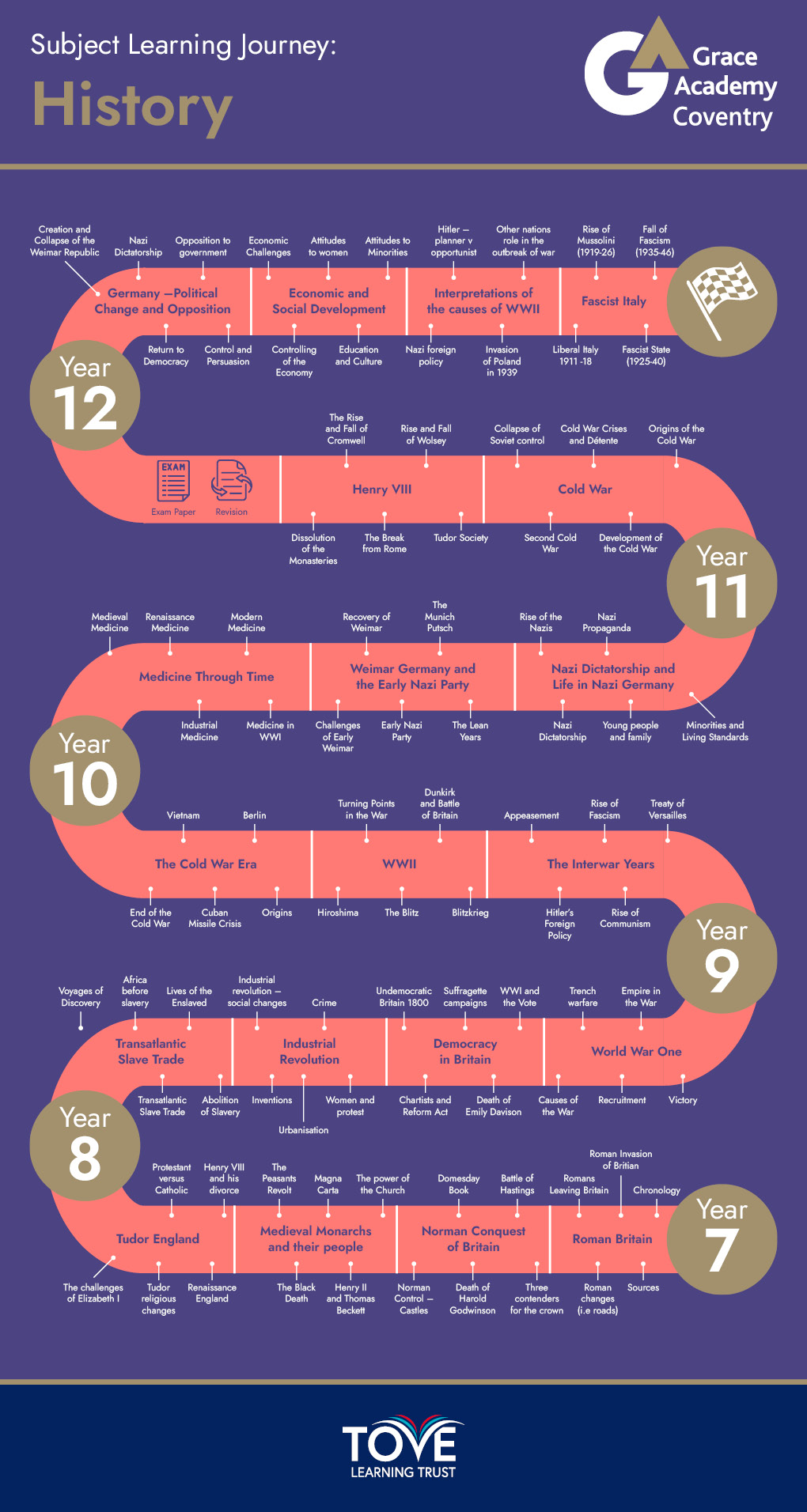History
Curriculum Intent
History at Grace Academy Coventry will provide a broad, balanced and fascinating view of history of both Britain and the wider world. It will prepare our students for the world outside of education and allow them to participate fully in British society and in the debates about its past. Students will learn to discuss different viewpoints showing tolerance and respect and will learn a range of important topics to support their academic understanding through KS4 and beyond, both within History and in other subjects, where understanding the past is vital.
Students will learn this through a combination of important substantive concepts such as:
- monarchy during the medieval period
- the development of democracy in the 1800’s and 1900’s
- the broad changes to social attitudes and structure since WWII.
Students will fuse this substantive understanding with key disciplinary skills, and by the end of their period of study, students will be able to:
- explain causation, consequence and significance in an increasingly accurate and
detailed manner.
- use sources in context, applying increasingly sophisticated methods of analysis and evaluation to test these sources for their utility and make reasoned judgements.
- develop the skill required to understand the different ways in which the past has been interpreted and represented by others, as well as to explain and critique those interpretations.
History will be assessed through a range of formative and summative assessment to gauge student’s progress and establish their grasp of the curriculum so that misconceptions and gaps can be swiftly addressed, including those that might exist from uneven coverage at KS2.
Qualification information:
https://qualifications.pearson.com/en/qualifications/edexcel-gcses/history-2016.html
Curriculum content:
Attached are the curriculum maps which outline the sequence we use in order to structure our learning. If you would like to support your child's learning, we have attached links to Oak National Academy who provide lessons, activities and resources for commonly taught topics. Please use the curriculum map for this subject before visiting:
https://teachers.thenational.academy/subjects/history/key-stages/key-stage-3
https://teachers.thenational.academy/subjects/history/key-stages/key-stage-4

